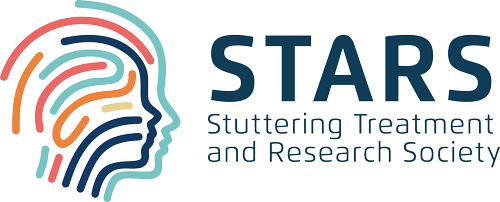
For Healthcare Professionals
FREE CME Course Available!
Stuttering: A Neurological Perspective for
Healthcare Professionals
Stuttering is a neurological disorder, not a psychological or behavioral condition. Research has revealed that brain function, neurotransmitter imbalances, and genetic factors play a critical role in the onset and persistence of stuttering. As healthcare professionals, it is essential to approach stuttering as a neurobiological condition, integrating medical, therapeutic, and psychosocial strategies to provide comprehensive care.
The Neurobiology of Stuttering
Advances in neuroscience have identified key brain mechanisms underlying stuttering, offering a deeper understanding of why fluency disruptions occur.
Research highlights include:
Dopamine Dysregulation
Studies suggest that excess dopamine activity in speech-related brain regions contributes to stuttering. This has led to clinical trials exploring dopamine-modulating medications as potential treatments.
Basal Ganglia Dysfunction
Neuroimaging studies indicate abnormal activity in the basal ganglia, a structure responsible for motor planning and execution, which affects the timing and coordination of speech movements.
Genetic Links
Certain mutations in specific genes (e.g., GNPTAB, GNPTG, NAGPA) have been identified in people who stutter, suggesting a hereditary component influencing neural pathways related to speech fluency.
Pharmacological and Comprehensive Approaches
Historically, stuttering treatment has focused primarily on speech therapy and behavioral interventions. However, emerging biologic approaches have expanded treatment possibilities, including:
Dopamine-Modulating Medications
Clinical trials have shown that dopamine blocking medications (e.g., risperidone and olanzapine) may reduce stuttering severity in many individuals but can be associated with side-effects.
Neuromodulation and Brain Stimulation
Research is exploring how transcranial magnetic stimulation (TMS) and deep brain stimulation (DBS) may alter neural activity in speech-related areas.
Combination Therapies
Integrating these biologic approaches with speech therapy and psychotherapy may yield promise in improving the multifaceted symptoms of stuttering reducing the psychological impact of stuttering.
Treating Co-Existing Conditions
People who stutter often struggle with co-existing neuropsychiatric conditions such as Social Anxiety Disorder and Attention Deficit Hyperactivity Disorder and interdisciplinary therapies often produce the best positive outcomes.
Beyond Speech:
The Psychological and
Social Impact
Stuttering extends beyond speech disruptions; it may significantly affect mental health and social participation. Many individuals experience:
- Increased risk of social anxiety disorder (SAD)
- Avoidance behaviors and reduced quality of life
- Workplace discrimination and underemployment
STARS is committed to improving access to healthcare for persons who stutter through education, research and advocacy. We believe stuttering is no different than any other neuropsychiatric condition is in that individuals will face less stigma and discrimination as knowledge is gained of its underlying neuroscience. STARS is supporting efforts to bring healthcare professionals together in providing multidisciplinary care incorporating advanced biologic treatment, psychotherapy and speech therapy.

A Call for a Medical and Multidisciplinary Approach
Stuttering is a complex condition that may respond better to a collaborative approach among physicians, speech language pathologists, psychologists, and other healthcare professionals.
STARS will provide education to the greater healthcare community on emerging discoveries and treatments which will help facilitate better outcomes for people who stutter.
View Upcoming Events & Conferences